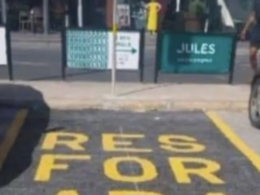In an explosive testimony heard over the past two days, Sam Sittlington, the court-appointed investigator in the high-profile Vitals case against former Prime Minister Joseph Muscat, Deputy Prime Minister Chris Fearne and others, revealed a significant oversight. He admitted that a massive cache of data, amounting to gigabytes, had been “forgotten” and was only noticed in late May—after Magistrate Vella had already signed the inquiry’s proces verbal and the Attorney General had filed charges. This discovery raises critical questions about the diligence of the investigation and the magistrate’s role in the oversight of evidence.
What is most alarming is that the omission was discovered not by the magistrate before she made her recommendations, but by the prosecution team, who found references to the missing documents in other inquiry papers. This glaring error begs the question: how did the magistrate feel confident enough to recommend charges without having reviewed all the available evidence?
Forgotten Data and Professional Oversight

The omission of such a large amount of data—reported to be gigabytes of potentially crucial PDF files—casts serious doubt on the professionalism of court-appointed investigators like Sittlington. This is not the first time Sittlington has come under scrutiny. In a previous controversy, Sittlington was accused of trying to leverage his role as a Malta police consultant for personal financial gain. This latest incident only adds to the growing concerns about the integrity of his investigative work.
The fact that Magistrate Vella herself didn’t realise the data was missing until a month after signing off on the inquiry suggests a worrying lack of critical scrutiny. How can decisions on prosecution be credible when such fundamental oversights occur? What if the missing data contains exculpatory evidence that could alter the outcome of the inquiry?
Magistrate Vella’s Oversight: A Cause for Concern
Magistrate Vella’s failure to detect the missing cache raises serious concerns about the robustness of the inquiry. With gigabytes of potentially critical evidence unreviewed, what kind of evaluation was conducted before she recommended charges?
If she had indeed reviewed the expert reports thoroughly, how could she miss the absence of cross-referenced material? This oversight has led to growing calls for more rigorous scrutiny of the magistrate’s role in this case. If the magistrate did not read the expert reports in full or properly assess the evidence, it raises a deeper question: were the charges filed prematurely, or worse, without sufficient grounds?
Given that the inquiry had been ongoing for four and a half years, some are asking whether the magistrate rushed to close the case in April under pressure, potentially missing vital evidence. This timing is also raising eyebrows among political commentators, who suggest that the inquiry report was released strategically during the recent electoral campaign, just ahead of the MEP and local council elections held on 3 June. If true, such timing could imply a disturbing politicisation of judicial proceedings.
Legal Concerns Over Due Process
Legal experts consulted by Corbin’s Voice have expressed grave concerns about the implications of these revelations, particularly in terms of fair trial rights. Under criminal law, full disclosure of evidence is paramount, with both prosecution and defence entitled to access all relevant materials. The omission of such a substantial amount of data, according to these experts, could fatally compromise the Vitals case.
“If the magistrate recommended charges without reviewing key evidence, this raises significant doubts about the integrity of the process,” remarked one legal professional. In legal systems similar to Malta’s, such oversights have led to applications for dismissal of charges or requests for a stay of proceedings, based on a breach of fair trial rights.
The missing documents might contain exculpatory evidence that could weaken the prosecution’s case. If the magistrate failed to account for this, it undermines confidence in both the inquiry and the legal procedures followed. Therefore, scrutiny must also extend to the standards expected of investigators like Sittlington, whose role in this oversight is equally troubling.
The Chain of Accountability
The prosecution team only noticed the missing documents because they were referenced in other inquiry materials. Without this internal cross-referencing, the absence of these gigabytes of data might have gone undetected, possibly for the duration of the case. This chain of errors reveals fundamental flaws in the workings of Malta’s legal system, where magistrates and investigators are expected to exercise diligence when assessing evidence.
What is particularly troubling is that the magistrate and the prosecution failed to realise the absence of these documents until after charges had already been filed. These charges—against a former Prime Minister, a sitting Deputy Prime Minister, and others—were made without a complete evidentiary record. This scenario raises the spectre of flawed prosecutions or, worse, a miscarriage of justice.
A Call for Reform
The missing cache of data, the delayed discovery of this oversight, and Magistrate Vella’s failure to critically assess the evidence all raise profound concerns about the quality of investigations in Malta’s justice system. If such significant lapses can occur, how can the public maintain trust in the judiciary’s decisions?
As the Vitals prosecutions unfolds, one question remains: will Malta’s justice system respond with the necessary reforms to prevent future oversights, or will these failings become an accepted part of the process? The implications for both the legal system and public confidence are too significant to ignore.
Share Your Voice
This issue affects not only those involved but also the credibility of Malta’s entire legal system. If you are concerned about the implications of this oversight or know someone who would be, share this article on social media or send it to a friend. Raising awareness is the first step towards demanding accountability.








